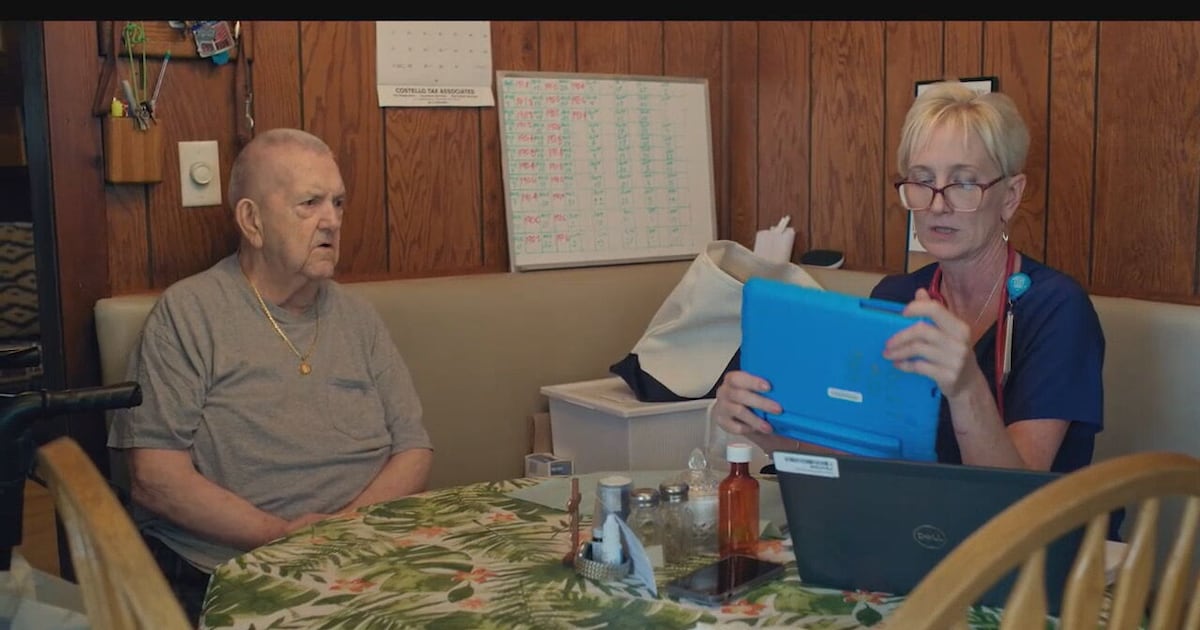Summary
Mass General Brigham has treated 7,000 home hospital patients but the care model is on the verge of expiring in September.
Source: Boston 25 News on MSN.com

AI News Q&A (Free Content)
Q1: What is the significance of the home hospital care model by Mass General Brigham, and why is it at risk of expiring?
A1: The home hospital care model by Mass General Brigham has gained significance due to its ability to treat patients at home, thereby freeing up hospital beds and potentially reducing healthcare costs. However, this program is at risk of expiring in September 2023 due to regulatory challenges and funding issues. The expiration of this program could lead to increased patient load in hospitals, affecting their capacity to manage new admissions.
Q2: How has Mass General Brigham contributed to medical research and healthcare, and what role does the home hospital program play in it?
A2: Mass General Brigham is the largest hospital-based research enterprise in the United States, with an annual research budget exceeding $2 billion. It plays a crucial role in medical research, teaching, and patient care. The home hospital program is part of their innovative healthcare model that aims to integrate remote patient care with traditional hospital services, potentially reducing bed shortages and enhancing patient satisfaction.
Q3: What are the potential cost benefits of remote hospitalization as suggested by recent research?
A3: Recent research indicates that remote hospitalization can be cost-effective, especially for patients located at moderate distances from healthcare facilities. Hybrid hospital models that combine on-site and remote care can optimize the allocation of medical resources and potentially reduce healthcare costs. However, the cost-effectiveness of remote care is influenced by factors such as patient travel time and resource availability.
Q4: What challenges does the home hospital care model face in terms of resource allocation and patient management?
A4: The home hospital care model faces challenges in optimal resource allocation and patient management. Research suggests that determining the right balance between on-site and remote care, based on patient characteristics and proximity, is complex. Additionally, managing resources efficiently between different types of patients requires strategic planning to ensure both cost-effectiveness and quality care.
Q5: How does the home hospital care model impact patient re-hospitalization rates according to recent studies?
A5: Studies have shown that the home hospital care model can significantly reduce re-hospitalization rates. By using predictive models to optimize service selection, healthcare providers can tailor care services to individual patient needs, thereby reducing the likelihood of emergency re-hospitalizations. This approach not only benefits patient outcomes but also helps in minimizing healthcare costs.
Q6: What are the implications of the expiration of the home hospital program for rural healthcare access?
A6: The expiration of the home hospital program could have significant implications for rural healthcare access. While telemedicine and remote care were expected to alleviate rural healthcare disparities, research indicates that on-site care might be more cost-effective for distant patients due to travel risks. Therefore, the program's expiration might exacerbate healthcare access issues in rural areas, where hospital closures have already created 'hospital deserts.'
Q7: What future developments are anticipated for transitional care from hospitals to home using AI and digital assistance?
A7: Future developments in transitional care from hospitals to home are expected to incorporate AI and digital assistance to enhance patient management and sustainability in healthcare. These advanced technologies can support personalized care pathways, improve patient monitoring, and facilitate seamless transitions between hospital and home care, ultimately contributing to a more efficient and patient-centered healthcare system.
References:
- Mass General Brigham - https://en.wikipedia.org/wiki/Mass_General_Brigham
- The Hybrid Hospital: Balancing On-Site and Remote Hospitalization - https://arxiv.org/abs/2408.09222
- Service Selection using Predictive Models and Monte-Carlo Tree Search - https://arxiv.org/abs/2002.02512
- New care pathways for supporting transitional care from hospitals to home using AI and personalized digital assistance - https://arxiv.org/abs/2504.01012





